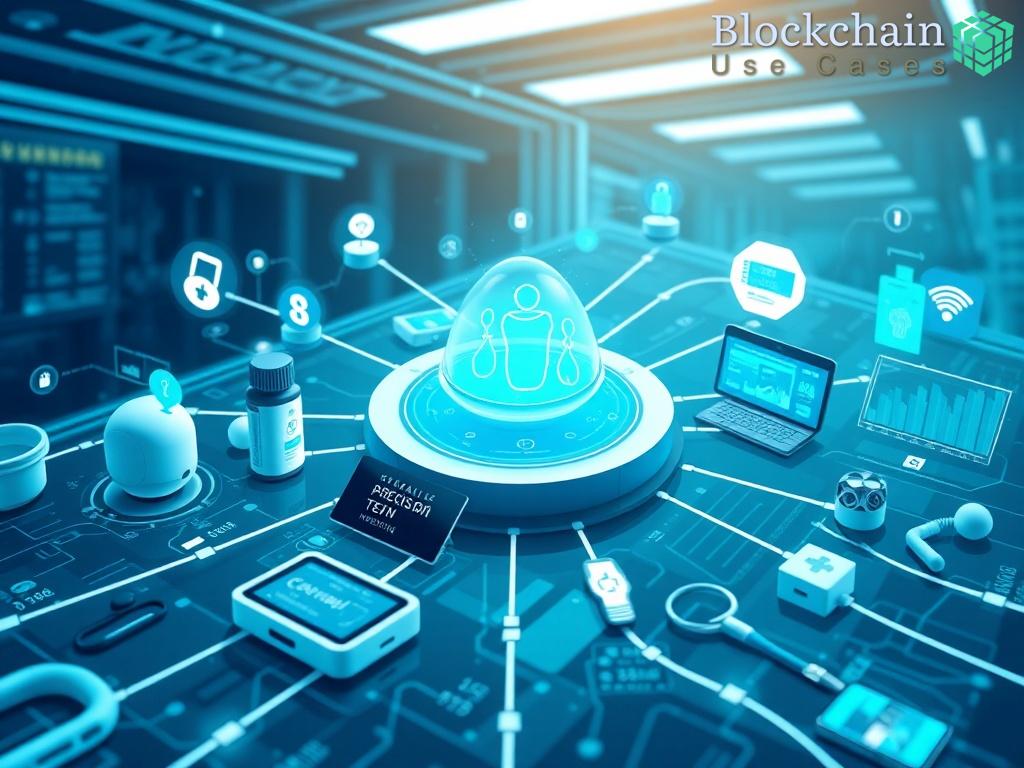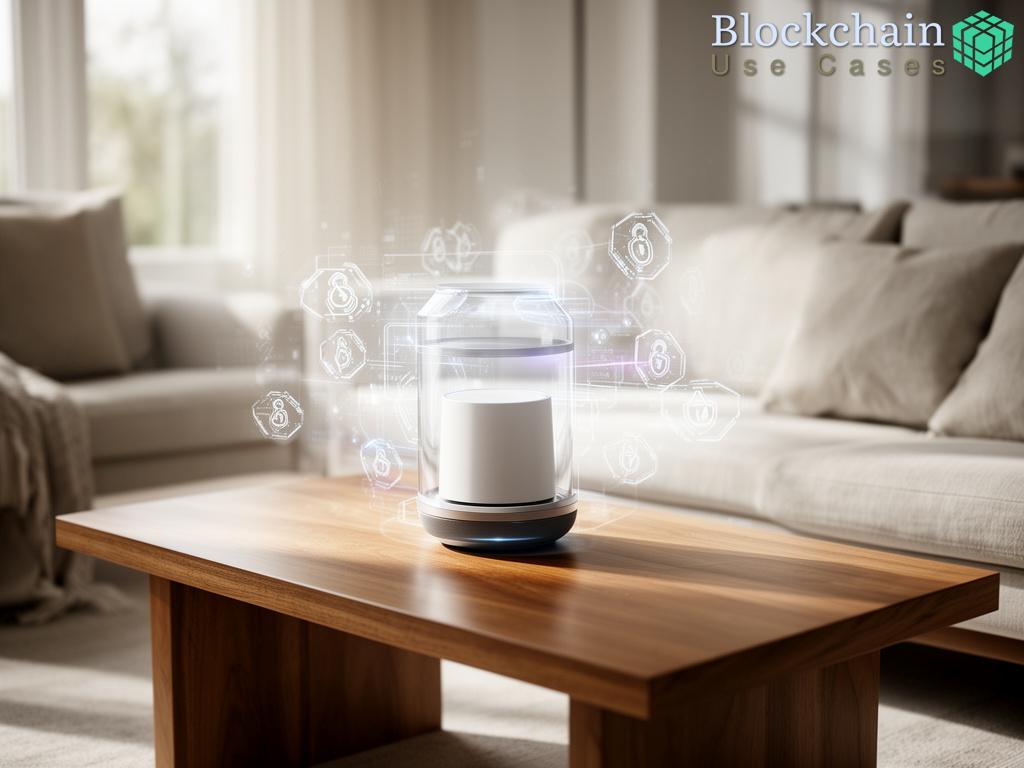Blockchain Integration for Secure Data Sharing

In the fast-evolving landscape of healthcare, the integration of blockchain technology presents a transformative opportunity for IoT-based precision medicine and personalized healthcare. This innovative approach addresses significant challenges faced in data sharing, particularly concerning privacy, security, and interoperability. As healthcare becomes increasingly data-driven, the need for a secure, transparent, and efficient method of sharing sensitive patient information has never been more paramount.
Blockchain operates on a decentralized model, where data is stored across a network of computers, ensuring that no single entity has control over the entire dataset. This characteristic fosters trust among stakeholders, including patients, healthcare providers, and researchers. By utilizing smart contracts, blockchain can automate and enforce agreements regarding data access and usage, reducing the likelihood of breaches and unauthorized access.
The following table illustrates the key benefits of blockchain integration in healthcare data sharing:
| Feature | Description |
|---|---|
| Security | Data encryption and decentralized storage protect against unauthorized access. |
| Transparency | All transactions are recorded on a public ledger, ensuring accountability. |
| Interoperability | Facilitates seamless data exchange between various healthcare systems. |
| Patient Control | Empowers patients to manage their own health data permissions. |
| Cost Efficiency | Reduces administrative costs associated with data management and compliance. |
By leveraging blockchain technology, healthcare organizations can build a collaborative ecosystem that enhances data sharing while maintaining patient confidentiality. This integration not only supports research and innovation in precision medicine but also promotes a holistic approach to patient care. As the healthcare industry continues to embrace digital transformation, the role of blockchain in facilitating secure data sharing will undoubtedly become a cornerstone of personalized healthcare.
Smart Contracts in Personalized Treatment Protocols
As the healthcare sector embraces the digital revolution, the potential of smart contracts within decentralized platforms emerges as a game-changer for personalized treatment protocols. These self-executing contracts, encoded with specific terms and conditions, ensure that healthcare services are delivered in a transparent and efficient manner while safeguarding patient data integrity. By integrating smart contracts into IoT systems, stakeholders can revolutionize how treatments are tailored to individual needs, leading to better patient outcomes and optimized healthcare processes.
Transforming Treatment Delivery through Automation
Smart contracts facilitate the automatic execution of treatment plans based on real-time data collected from IoT devices. This automation minimizes human error and enhances the accuracy of patient care. For instance, when a patient’s wearable device detects a change in health metrics, the smart contract can trigger immediate actions, such as notifying healthcare providers or adjusting medication dosages. This level of responsiveness not only empowers patients but also ensures that healthcare professionals are equipped with timely information to make informed decisions.
Enhancing Compliance and Accountability
Compliance with treatment protocols is paramount in personalized healthcare. Smart contracts enforce adherence by encoding specific regulations and guidelines within their framework. This ensures that healthcare providers and patients alike are held accountable for following prescribed protocols. For instance, if a patient fails to attend a scheduled appointment, the smart contract can automatically alert the provider, allowing for timely interventions. This proactive approach fosters a culture of accountability that enhances patient engagement and adherence to treatment plans.
Key Advantages of Smart Contracts in Healthcare
The integration of smart contracts into personalized treatment protocols brings forth numerous advantages:
- Efficiency: Processes are streamlined through automation, reducing administrative burdens.
- Transparency: All actions taken under smart contracts are recorded on the blockchain, promoting accountability.
- Patient Empowerment: Patients gain greater control over their treatment plans and data access.
- Cost Reduction: By minimizing errors and administrative tasks, healthcare costs can be significantly lowered.
Smart contracts represent a paradigm shift in how personalized healthcare is approached. By leveraging these contracts within decentralized platforms, the healthcare industry can move toward a more efficient, accountable, and patient-centered model of care. As the landscape of precision medicine evolves, the integration of smart contracts will play a crucial role in shaping the future of personalized healthcare.
Edge Computing for Real-Time Health Monitoring
The advent of edge computing is reshaping the landscape of health monitoring, particularly when integrated with IoT technologies. By processing data closer to the source, edge computing addresses the urgent need for timely and actionable health insights in personalized healthcare. This paradigm shift is crucial for managing the vast amounts of data generated by wearable devices and IoT sensors, enabling healthcare providers to make rapid decisions that can significantly influence patient outcomes.
Reducing Latency for Immediate Response
One of the primary benefits of edge computing is its ability to minimize latency. In a healthcare context, where every second counts, the infrastructure allows for immediate data processing and analysis. For instance, an IoT device monitoring a patient’s heart rate can instantly send alerts if irregularities are detected, prompting immediate medical intervention. This real-time capability is especially vital for patients with chronic conditions who require constant monitoring, ensuring that emergency actions are taken without delay.
Enhancing Data Privacy and Security
As healthcare organizations increasingly prioritize patient confidentiality, edge computing offers an additional layer of security. By processing sensitive health data locally, it reduces the need to transmit vast amounts of information over networks, thereby diminishing the risk of data breaches. Furthermore, with blockchain integration, the data can be encrypted and stored in a decentralized manner, ensuring that only authorized parties have access. This dual approach not only fortifies data integrity but also builds trust among patients, who are often concerned about how their health information is utilized.
Optimizing Resource Utilization and Cost Efficiency
Incorporating edge computing into health monitoring systems also optimizes resource utilization. By alleviating the burden on centralized data centers, healthcare organizations can reduce operational costs while enhancing service delivery. The localized processing means that less bandwidth is required for data transmission, resulting in significant savings. Additionally, this efficiency allows healthcare providers to allocate resources more effectively, focusing on patient care rather than data management.
Ultimately, the fusion of edge computing with IoT technologies marks a significant leap forward in precision medicine. By facilitating real-time health monitoring, enhancing data security, and optimizing resource utilization, this approach not only transforms patient care but also fosters a more responsive and efficient healthcare system. As we continue to explore the potential of decentralized platforms, it becomes evident that the future of personalized healthcare is not just about data; it’s about making that data work for patients when they need it the most.
Patient-Centric Data Ownership and Control
In an era where data is often viewed as a commodity, the need for patient-centric data ownership has taken center stage. As healthcare evolves, the traditional model of data control is being challenged, giving way to a more equitable framework that places patients at the helm of their health information. This shift is particularly pertinent in the context of decentralized platforms that leverage blockchain and IoT technologies, fundamentally transforming how patients engage with their healthcare data.
This paradigm empowers patients not just as passive recipients of care, but as active participants in managing their health. With decentralized platforms, individuals can dictate who accesses their data, how it is used, and for what purposes. This level of control fosters a sense of ownership, which is crucial for building trust between patients and healthcare providers. As patients retain their data rights, they also gain the ability to contribute to clinical trials, research, and other initiatives aimed at enhancing personalized healthcare.
Blockchain technology plays a pivotal role in augmenting patient data control. By utilizing a decentralized ledger, patients can securely store their health records while ensuring that their data remains tamper-proof and immutable. This not only safeguards against unauthorized access but also empowers patients to share their information selectively with healthcare providers, researchers, or other stakeholders as needed. With transparency at the core of blockchain, patients can track who has accessed their data and for what reasons, thereby enhancing accountability.
Moreover, the integration of smart contracts within these platforms further streamlines data transactions. These self-executing agreements can automate various processes, such as consent management and data sharing protocols. For example, when a patient agrees to participate in a research study, a smart contract can facilitate the secure transfer of relevant information while adhering to the patient’s specified permissions. This seamless interaction not only optimizes data flow but also reinforces the patient’s control over their health information.
As healthcare transitions to a model that prioritizes patient engagement, the emphasis on data ownership cultivates a culture of trust. Patients who have control over their data are more likely to engage actively with their healthcare providers and treatment plans. This enhanced engagement can lead to improved health outcomes, as patients feel more empowered to make informed decisions based on their own health data. Moreover, when patients are involved in the management of their health information, they are more likely to adhere to treatment protocols and participate in preventative measures.
In conclusion, decentralized platforms not only foster a more equitable healthcare environment but also promote a proactive approach to health management. By placing patients in control of their data, the healthcare industry can transform how care is delivered, ensuring that it is more personalized, secure, and aligned with individual needs. As we navigate this new frontier, the collaborative efforts between technology, healthcare providers, and patients will undoubtedly shape the future of precision medicine.
Interoperability Challenges in Decentralized Healthcare Systems
The evolution of decentralized platforms in healthcare is poised to revolutionize precision medicine and personalized healthcare. However, as the integration of IoT technologies deepens, a critical barrier emerges: interoperability. This challenge must be addressed to harness the full potential of decentralized healthcare systems effectively. Without seamless communication among various platforms, devices, and data sources, the promise of enhanced patient care remains unfulfilled.
Understanding Interoperability in Healthcare
Interoperability refers to the ability of different systems and organizations to work together, exchanging and interpreting shared data. In the context of decentralized healthcare, this is particularly significant as diverse platforms utilizing blockchain and IoT must communicate efficiently. The lack of standardized protocols can lead to fragmented data silos, where critical health information is isolated within specific systems, thereby impeding comprehensive patient care. The integration of devices that collect real-time health metrics, such as wearables, must translate this data into actionable insights across various platforms. Without interoperability, valuable information may never reach the providers who need it most, risking delayed treatment or misdiagnosis.
Overcoming the Barriers to Seamless Integration
To overcome the interoperability challenges in decentralized healthcare systems, stakeholders must prioritize developing universal standards that facilitate data exchange. A collaborative approach involving healthcare providers, technology developers, and regulatory bodies is essential to establish frameworks that ensure compatibility while maintaining patient privacy and security. Moreover, leveraging the inherent benefits of blockchain technology can enhance data integrity and trust among participants. By ensuring that all data exchanges are recorded transparently on a decentralized ledger, stakeholders can enhance accountability and reduce discrepancies in patient records.
Additionally, enhancing the usability of application programming interfaces (APIs) can significantly improve interoperability. Well-designed APIs allow different systems to communicate effectively, ensuring that data can flow seamlessly between a patient’s wearable device and their healthcare provider’s electronic health record system. This interoperability not only streamlines processes but also empowers patients to have their health data readily accessible, fostering engagement and adherence to treatment protocols.
In conclusion, addressing interoperability challenges is pivotal for the success of decentralized platforms in IoT-based precision medicine and personalized healthcare. By establishing universal standards, enhancing API usability, and leveraging blockchain technology, the healthcare industry can create a cohesive ecosystem that facilitates seamless data exchange. This will ultimately lead to improved patient outcomes and a more efficient healthcare system, where technology and human care converge harmoniously.





